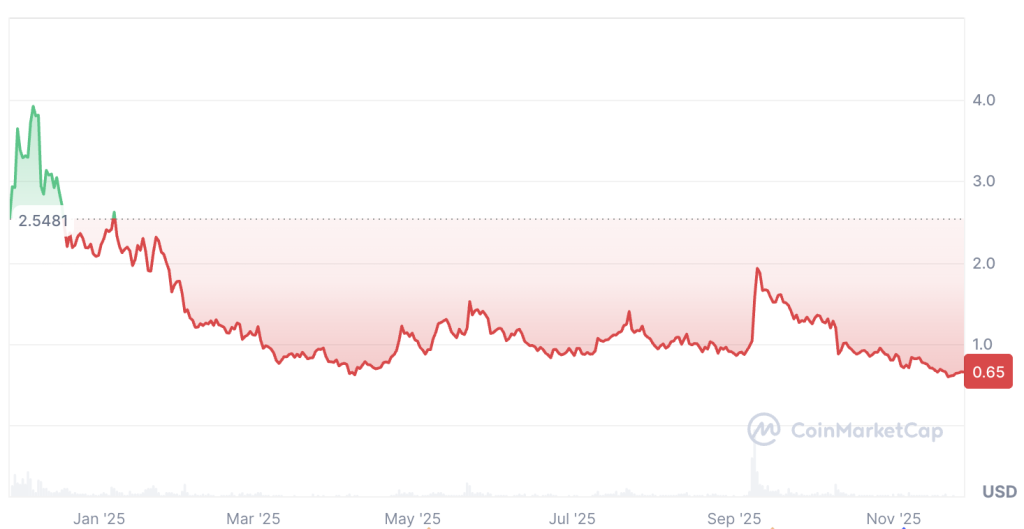Korean crypto bros are ‘pumping’ altcoins after Upbit’s $36M exploit
Korean crypto traders are having an outsize effect on local altcoin prices following a major hack at South Korean exchange Upbit, according to CryptoQuant CEO Ki Young Ju.
“Upbit got hacked and paused withdrawals, but Koreans are pumping alts since arbitrage bots are no longer running,” Ju said in an X post on Thursday, shortly after the exchange halted transaction activity after detecting an “abnormal transaction” equivalent to the value of around $36 million USD.
With arbitrage activity suspended, local buy orders are having more significant pressure on prices, allowing Korean listed altcoins to surge, as the selling pressure that typically put a ceiling on price increases has disappeared.
Crypto trader R2D2 said, “Unbelievable scenes here.” Crypto analyst A79 said, “Hack happens, and Koreans just flip it into a rally.”
Upbit announced on Thursday that it had suspended deposits and withdrawals after identifying an unauthorized transaction worth approximately 54 billion won ($36 million USD), involving mainly Solana-based assets that were transferred to an unidentified wallet address.
Assets reportedly affected by the hack include BONK (BONK), Official Trump (TRUMP), MOODENG (MOODENG), and Render (RENDER).
Upbit to cover loss to prevent “any damage” to user assets
The exchange clarified that while the hot wallet was impacted, its cold wallets — where the majority of user funds are stored — were not compromised.
Oh Kyung-seok, CEO of Dunamu, said, “We immediately identified the extent of the digital asset outflow caused by the abnormal withdrawals and will cover the entire amount with Upbit assets to prevent any damage to our members’ assets.”
Some industry participants were confused by the fact all the red numbers Ju shared were positive. StarkWare ecosystem lead Brother Odin was quick to ask the obvious question, before Ju explained that red is up in Korea, and blue is down.
The incident put fresh scrutiny on Dunamu, which had just announced a $10 billion acquisition deal with fintech giant Naver.
Notably, the hack occurred exactly six years after Upbit was compromised in November 2019, resulting in a loss of nearly $50 million in an attack orchestrated by the North Korean hacking group, Lazarus.
China showing signs of strong Bitcoin mining recovery: Report
Bitcoin mining activity in China is picking up again despite a nationwide ban, driven by cheap electricity and a significant data-center expansion in power-heavy regions, according to a recent report.
China has gradually regained its position as the world’s third-largest Bitcoin mining hub, after its share of global mining briefly dropped to zero following the ban in 2021, Reuters reported on Thursday.

One miner, identified only as Wang due to privacy concerns, said he began mining Bitcoin last year. He explained that surplus power in regions like Xinjiang has made mining economically viable.
“A lot of energy cannot be transmitted out of Xinjiang, so you consume it in the form of crypto mining,” Wang said.
Read also
Features
Meet Dmitry: Co-founder of Ethereum’s creator Vitalik Buterin
Features
Blockchain detectives: Mt. Gox collapse saw birth of Chainalysis
Despite the ban, the growth of mining isn’t going to slow down anytime soon, according to Wang. “New mining projects are under construction. What I can say is that people mine where electricity is cheap.”
Patrick Gruhn, CEO of Perpetuals.com, a crypto market infrastructure provider, said that “Chinese policy flexibility emerges when economic incentives are strong in specific regions.”
Thailand moves to shut down Worldcoin
Thai regulators have moved to shut down Worldcoin operations in Thailand, citing violations related to the collection and use of sensitive biometric data.
The Personal Data Protection Committee (PDPC) ordered TDIC Worldverse, Worldcoin’s local operator, to delete biometric and personal data belonging to around 1.2 million users, according to the Bangkok Post.
Read also
Features
Could a financial crisis end crypto’s bull run?
Features
Beyond crypto: Zero-knowledge proofs show potential from voting to finance
The Thai regulators said that the crackdown is aimed at preventing potential illegal transfers or misuse of the data.
The further explained that Worldcoin’s practice of collecting iris scans in exchange for WLD tokens violates Thailand’s Personal Data Protection Act (PDPA), specifically due to not enough safeguards in place for obtaining consent regarding sensitive biometric information.

Co-founded by OpenAI creator Sam Altman, Worldcoin uses a device called “the Orb” to scan users’ irises and generate a cryptographically secured digital identity.
Participants receive Worldcoin tokens in return, a model that has triggered growing regulatory pushback worldwide.
Thailand joins a growing list of countries that have taken action against Worldcoin due to privacy and data protection concerns, including Kenya, Spain, Portugal, Brazil, and Germany.
However, Dhiraphol Suwanprateep, a lecturer at Bangkok University, said the fines in Thailand will be nowhere near as severe as those in other nations.
Subscribe
The most engaging reads in blockchain. Delivered once a
week.


Ciaran Lyons
Ciaran Lyons is an Australian crypto journalist. He’s also a standup comedian and has been a radio and TV presenter on Triple J, SBS and The Project.
